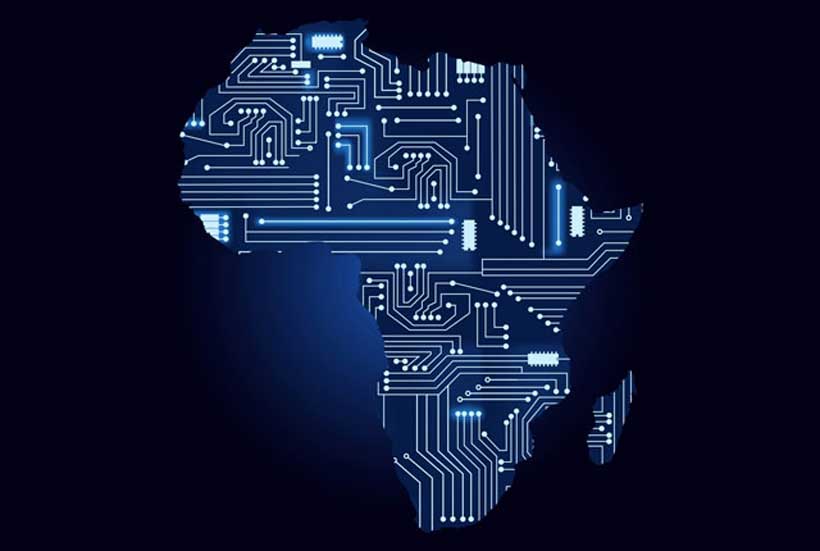In today’s world, telecommunication companies compete fiercely to attract and keep as many customers as possible, as fast Internet access has become increasingly important for business and personal use.
Ookla and UmlaT, two data and technology companies, have reported that MTN has the fastest Internet connection in sub-Saharan Africa. Compared to city-by-city, the specifics are more accurate, and the results are impressive.
Despite recent advances, Africa still has much slower Internet speeds than the rest of the globe. However, as global giants dock in Africa, we might witness a significant shift.
If having a fast Internet connection can help people with many things, they will probably be underselling its benefits. These days, it influences the types of jobs they land, how they spend their free time, and how much information they have access to.
Faster Internet serves as a foundation for a number of breakthroughs, which explains the absurd leap from 1G to 5G in just five decades. Africa has consistently watched and arrived late to these jumps, but recent events imply that may be changing.
Internet provider and the degree to which they select home area is urbanized will affect how they use the Internet in Africa.
Read also: ISOC Seek Support To Strengthen Internet Governance
Technology and data companies are offering some insights is potentially noteworthy. In order to determine which network providers offer the fastest Internet speeds and in which cities, Ookla, a US-based network diagnostic company, used findings from its data platform, Speedtest. The results are expected, but a “shocker” is coming.
MTN, Vodacom, Airtel, and Orange were the four operators that Ookla focused on. In sub-Saharan Africa, these firms collectively account for 62% of Internet subscribers; therefore, they should look into fixed broadband or save up and move if they don’t think their speeds are sufficient.
Instead of using the mean average, Speedtest uses the median average. Ookla provides a more accurate picture of the Internet speed a user may expect to experience in a given nation or city.
Internet Connectivity in African Cities
Towns have historically served as hubs for important economic activity, and technology firms in some of Africa’s largest cities are accelerating the performance of their networks.
Vodacom and MTN have the fastest Internet speeds in Johannesburg and Cape Town, respectively, during Ookla’s review period. In Johannesburg, MTN is in third place, while Vodacom is in fourth in Cape Town.
In Gaborone, Botswana, Orange offers the fastest non-5G Internet in an African city. MTN is reportedly speedier in Lagos and Abuja, Nigeria’s two largest cities, according to Ookla.
In conclusion, the two African cities with the quickest mobile Internet connections are Johannesburg and Cape Town.
While most African continents’ big cities continue to advance at an astounding rate, this is not necessarily the case for the rest of the nation. Some telecoms operate admirably in the nation’s largest cities but fall short when their overall performance is considered.
Qatar Airways Selects Inmarsat as its in-flight internet provider
Internet performance in Africa compared to the rest of the world
“At first sight, it would appear that Africa is still far behind the rest of the world (which it is, by the way), but recent trends indicate that the continent may soon begin competing with the world’s superpowers.“ Said Ookla.
A check at average (mean) worldwide Internet speeds reveals that no African nation even comes close to the criterion of 77 Mbps. Ookla also said, “But please listen to us; if we look at the median average, the continent’s situation is substantially better.”
In its test in sub-Saharan Africa, Ookla’s highest speed was with Vodacom Johannesburg. The telco offered a median download speed of 81.3 Mbps due to its 5G network.
However, the average download speed in South Africa is 38 Mbps, which is more likely to be experienced by the average user. With this rating, the nation is positioned just over the 30Mbps stated global average of 30Mbps.
Only Togo (36 Mbps) exceeds the world average, with South Africa being the sole exception. Starting at 27 Mbps, the remaining 52 African nations start to slow down.
Nevertheless, international industry behemoths storm onto the African connectivity market as competition heats up. Beyond long-standing telcos competing for 5G technology, Google, Facebook, and, more recently, Equinix have made inroads into the African market with the introduction of subsea Internet cables.




